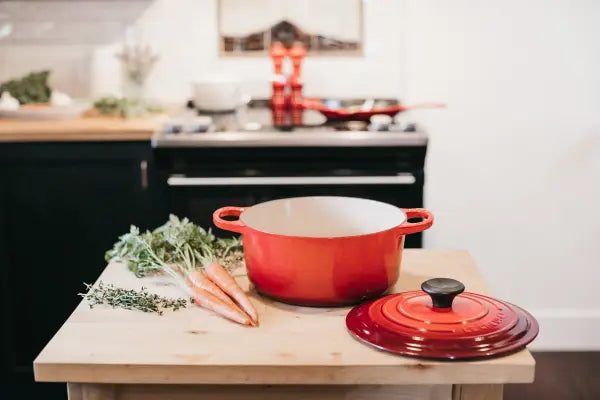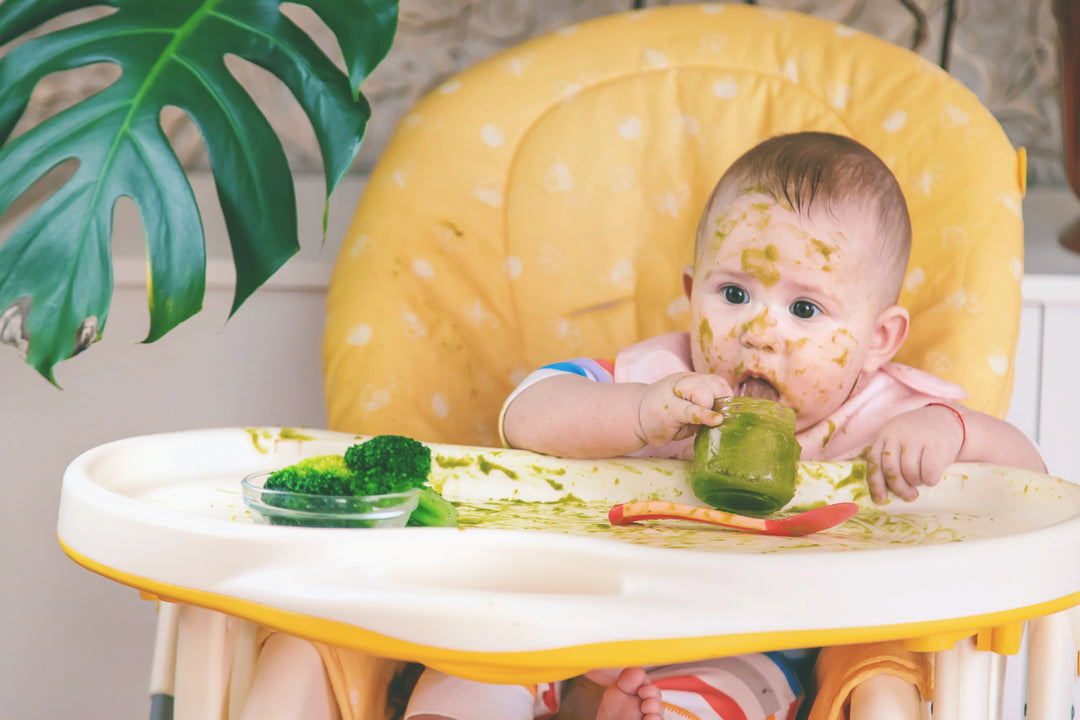Starting Solids: Why Age Doesn’t Matter as Much as These Signs Do

Starting solids is one of those exciting parenting milestones that comes with plenty of joy, and just as many opinions. Your parents might insist that your little one needs cereal to sleep through the night. Your friend swears by Baby-Led Weaning, and your sister-in-law went the traditional purée route. With all this well-meaning noise, it’s easy to feel overwhelmed.
So how do you actually know when your baby is ready to start solids? Let’s break it down together.
Why timing matters (and why you don’t have to rush it)
Although timing to start solids may differ across cultures, the key is to ensure your baby is developmentally ready. Trying solids too early can increase the risk of choking or digestive discomfort. Waiting too long might mean missing out on some key nutrients or moments that support growth and curiosity around food.
The American Academy of Pediatrics (AAP) recommends introducing solids around six months of age, but here’s the thing, age alone isn’t the best indicator. Readiness is more about where your baby is developmentally rather than what the calendar says.
4 Signs your baby might be ready to start solids (It’s not just age)
Your baby might be ready to start solids when they show a few important developmental signs.
Quick-read version:
-
Sitting up with a bit of support
-
Strong head and neck control
-
Interest in food and what you’re eating
-
Bringing hands (or spoons!) to their mouth
Here’s what that can look like day to day:
Can your baby sit with some support? That’s a great starting point

Sitting up with a bit of support is a big deal when it comes to feeding readiness. It means your baby can stay safely upright while exploring new textures and tastes.
They don’t need to sit completely unassisted, it’s totally fine if they need a little help around the hips or use their arms for balance. You just want to see a steady posture in a high chair or on your lap, without flopping forward or tipping over.
 Head and neck control: What to look for before that first bite
Head and neck control: What to look for before that first bite
Good head and neck control helps your baby chew and swallow safely. You’ll want to see them holding their head upright without a lot of bobbing. That stability gives them the control they need to manage food in their mouth.
Curious about what you’re eating? That’s a solid sign of readiness
One of the most exciting cues is when your baby starts eyeing your food, reaching toward your plate, or opening their mouth as a spoon approaches. It’s their way of saying, "Hey, that looks interesting. I want to try!"

Bringing things to their mouth? It might be time to try solids
If your baby is grabbing toys or fingers and bringing them to their mouth, it shows that they’re building coordination. This hand-to-mouth action is a key step in learning to self-feed.
Do babies need to be a certain age or weight to start solids?
Some parents wonder if their baby needs to double their birth weight or wait until exactly six months old before starting solids.
Here’s the truth- those numbers aren’t rules, they’re general guidelines.
What really matters more:
-
Developmental signs over strict timelines
-
Every baby grows at their own pace
-
Some are ready earlier or later, and both are okay
-
Watch for cues, not just the calendar
-
Your pediatrician is there to help if you're unsure
If you're still feeling unsure, you're not alone. Many families find it helpful to check in with their pediatrician to talk through their baby's development and readiness.
What you’ve probably heard about starting solids (and what’s actually true)
There are a lot of strong opinions about starting solids out there. Some are helpful. Some... not so much. Let’s walk through a few common ones I hear as a pediatrician.
You might’ve heard things like:
-
“Solids will help your baby sleep through the night”
-
“Your baby needs teeth before starting solids”
-
“Rice cereal is the gold standard first food”
Myth #1
Will solids help my baby sleep longer? Not quite.
It’s a common belief, but the research doesn’t back it up. There’s no strong evidence that solids will help your baby sleep more soundly. In fact, some babies might have a little more sleep disruption as their digestion gets used to new foods. Totally normal.
Myth #2
No teeth? No problem! Soft foods are just fine
Your baby doesn’t need teeth to start solids. Their gums are stronger than you might think and can handle soft, well-prepared foods just fine. Think mashed avocado, cooked sweet potato, or soft banana slices.
Myth #3
Is rice cereal still the go-to first food? Not necessarily.
While rice cereal has long been considered a "starter food," it's not the only option, or even the best one for every baby. Iron-rich options are still important, but many families start with vegetables, fruits, or soft proteins. Variety is great for nutrition and helping little ones get used to different flavors.
Curious about what to serve first and what to avoid? Check out some of our suggestions for baby-led weaning first foods here.

Starting solids can feel big… Here’s how to make It feel simpler
Every baby is different, and there’s no perfect blueprint. What matters most is tuning into your baby’s cues and making it a calm, enjoyable process.
If you ever feel unsure, your pediatrician can be a great sounding board. And remember, this phase isn’t just about nutrition, it’s about discovery, connection, and building positive associations with food.
A few things to keep in mind:
-
Every baby develops at their own pace
-
You know your baby best
-
This is about trying, learning, and connecting
-
There’s room for purées and finger foods
-
Ask your pediatrician if you’re unsure
-
Dinner can be peas and toast, that counts too
Starting solids is just the beginning of your baby’s lifelong relationship with food. Each bite is a step toward healthier habits, new tastes, and sweet mealtime memories.
You've got this.
Happy feeding!

Written by Dr. Michelle Shiffman, MD
Pediatrician & Advisor at Bébé Foodie
Dr. Michelle Shiffman is a board-certified pediatrician based in Denver, Colorado. She brings her expertise in early development, food introduction, and culturally-sensitive care to Bébé Foodie, where she supports the creation of our evidence-based content and contributes to our expert panel. Michelle’s favorite part of her work is connecting with families during infant and toddler visits—especially when it comes to discussing developmental milestones and feeding. As a mom herself, she's also experienced the ups and downs of starting solids and managing picky eating.




Leave a comment